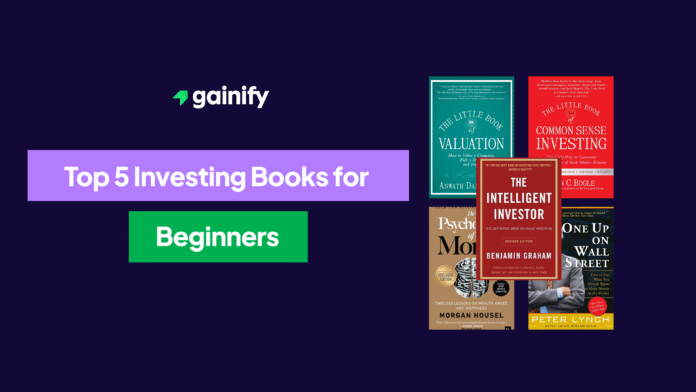Starting your investing journey can be both exciting and intimidating. With countless resources online and a flood of financial opinions, it can be hard to know where to begin. That’s why the most effective place to start is often with timeless, well-structured books that lay the foundation for financial success.
In this article, we’ve selected the top 5 investing books for beginners — each one offering a different perspective on markets, risk, mindset, and long-term strategy. Whether you’re looking to manage your personal investments, understand how markets work, or build lasting financial habits, these books are must-reads for developing clarity and confidence as an investor.
1. The Intelligent Investor by Benjamin Graham
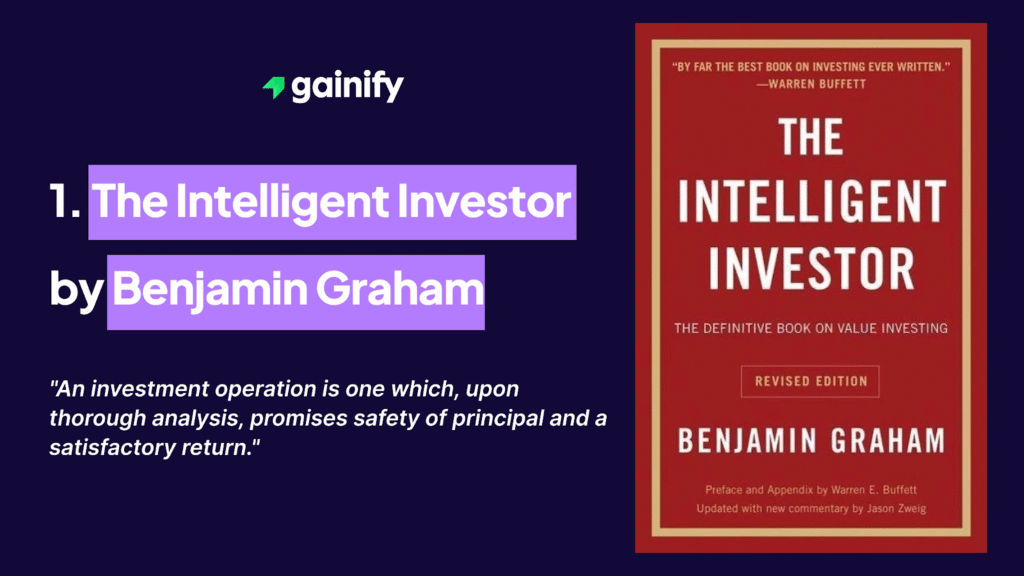
Best for: Long-term strategy, risk management, and value investing fundamentals
Level: Beginner to intermediate
Focus areas: Intrinsic value, margin of safety, investor psychology, market behavior
Overview:
Widely regarded as the most important investing book ever written, The Intelligent Investor lays the foundation for value investing — the strategy of buying undervalued stocks and holding them over time. Benjamin Graham, often called the father of value investing, presents a disciplined approach that prioritizes risk management and long-term thinking over speculation.
Why it matters for beginners:
Rather than promising shortcuts to wealth, Graham teaches readers how to think like investors, not traders. He emphasizes protecting capital, understanding what a company is truly worth (its intrinsic value), and maintaining a margin of safety. These timeless concepts help beginners avoid emotional decision-making and focus on sustainable, long-term growth.
Takeaway quote:
“An investment operation is one which, upon thorough analysis, promises safety of principal and a satisfactory return.”
2. The Little Book of Common Sense Investing by John C. Bogle
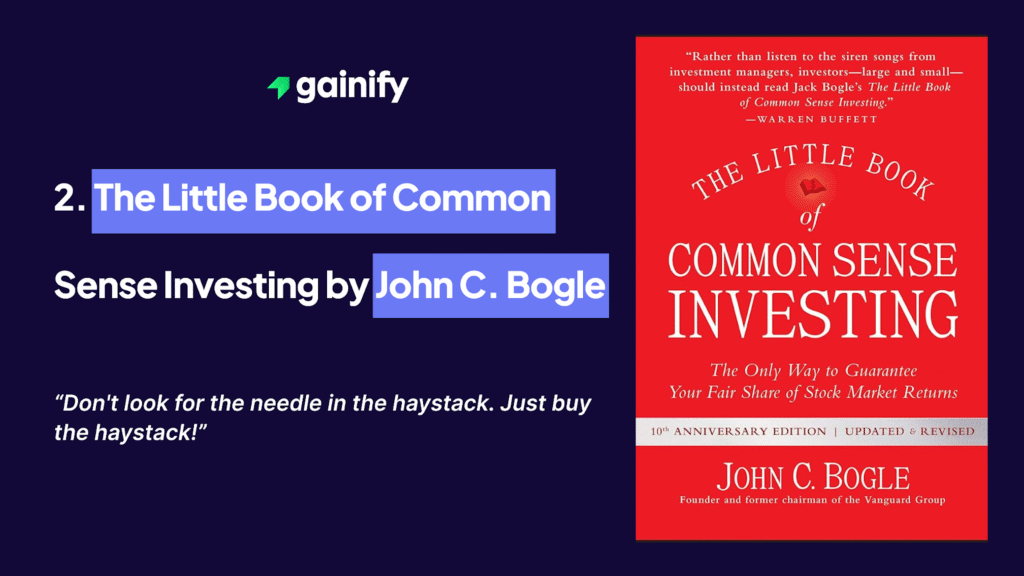
Best for: Passive investing, portfolio simplicity, and long-term wealth building
Level: Beginner
Focus areas: Index funds, cost-efficiency, compounding, long-term strategy
Overview:
Written by John C. Bogle, the founder of Vanguard and creator of the world’s first index fund, this book makes a strong case for keeping investing simple. Bogle explains why low-cost, broad-market index funds outperform most active strategies over time, especially after fees, taxes, and trading costs.
Why it matters for beginners:
This book removes the complexity and emotion from investing. Bogle’s message is clear: avoid trying to time the market or pick winning stocks. Instead, invest in the entire market at the lowest possible cost and let compounding do the work over time.
Top Quotes (Exact):
“Don’t look for the needle in the haystack. Just buy the haystack!”
3. The Little Book of Valuation: How to Value a Company, Pick a Stock, and Profit by Aswath Damodaran
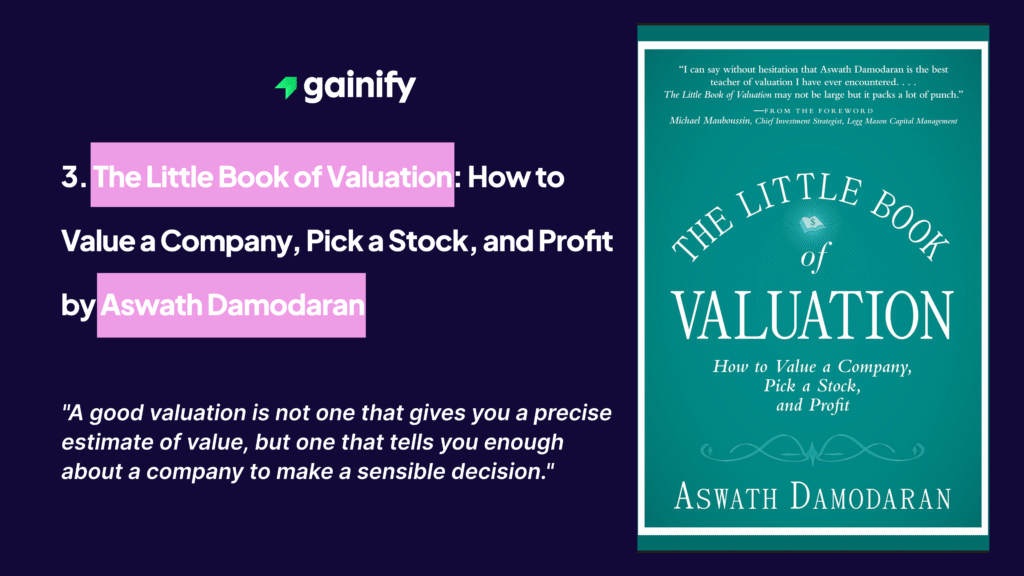
Best for: Learning how to value companies and make informed investment decisions
Level: Beginner to intermediate
Focus areas: Valuation methods, intrinsic value, cash flows, business models
Overview:
Aswath Damodaran, one of the most respected voices in corporate finance and valuation, offers a practical guide to understanding what a company is really worth. In this book, he simplifies core valuation techniques such as discounted cash flow (DCF), relative valuation, and asset-based valuation, using real-world examples across different industries.
Why it matters for beginners:
Unlike many technical finance books, Damodaran presents valuation in a clear, readable format that beginners can understand. He emphasizes that valuation is not about finding a precise number, but rather understanding a business well enough to make reasoned investment decisions. For anyone interested in learning how to pick stocks based on fundamentals rather than speculation, this book is an essential starting point.
Takeaway quote:
“A good valuation is not one that gives you a precise estimate of value, but one that tells you enough about a company to make a sensible decision.”
4. One Up On Wall Street by Peter Lynch
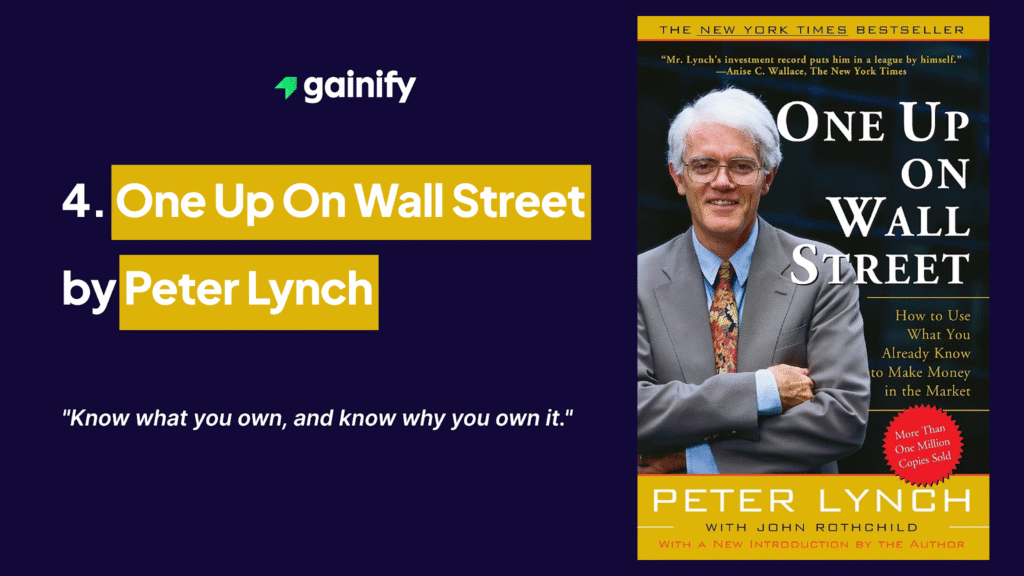
Best for: Stock picking and recognizing investment opportunities in everyday life
Level: Beginner to intermediate
Focus areas: Company research, fundamentals, long-term thinking
Overview:
Peter Lynch, who managed the Magellan Fund at Fidelity, shares how individual investors can outperform professionals by focusing on what they know. He advocates paying attention to products and services in daily life and doing thorough research before investing.
Why it matters for beginners:
Lynch’s advice empowers the individual investor. His emphasis on knowing what you own, and thinking independently, is a valuable lesson in a world increasingly influenced by financial noise.
Takeaway quote:
“Know what you own, and know why you own it.”
5. The Psychology of Money by Morgan Housel
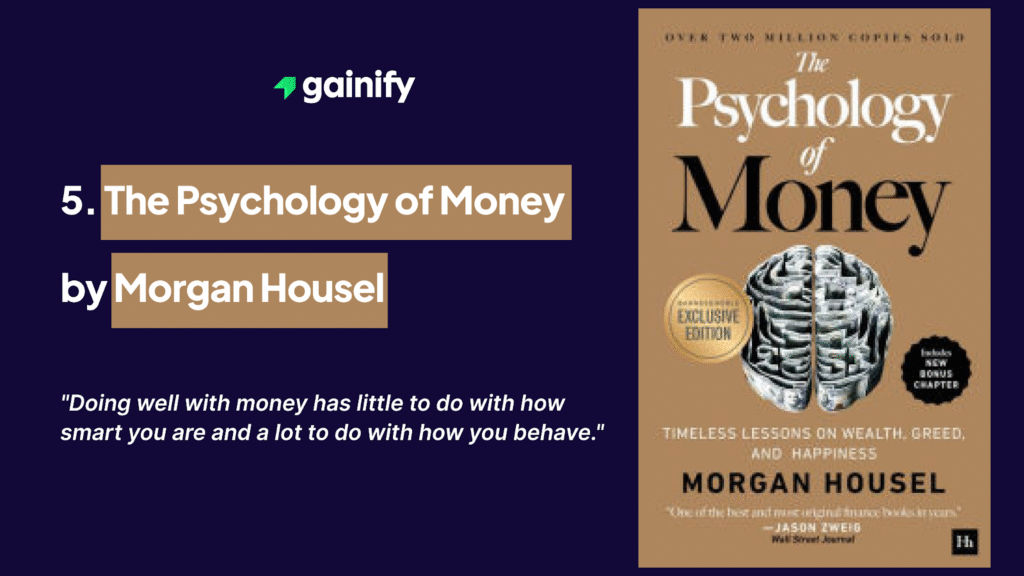
Best for: Building the right mindset and understanding the behavioral side of investing
Level: Beginner
Focus areas: Financial behavior, emotion, risk perception, habits
Overview:
This book offers a fresh perspective: success in investing has less to do with intelligence and more to do with behavior. Housel blends storytelling with practical insights on how people think about money, risk, and wealth over time.
Why it matters for beginners:
It’s one of the most approachable books on finance. Readers learn that managing money well often means managing oneself — expectations, patience, and emotional reactions.
Takeaway quote:
“Doing well with money has little to do with how smart you are and a lot to do with how you behave.”
Final Thoughts: The Best Investing Education Begins with Timeless Principles
These five books provide an exceptional foundation for anyone new to investing. Each one addresses a key area of financial literacy, including how markets work, how to value companies, how to build a portfolio, and how to manage your own behavior and expectations. Together, they offer a well-rounded education rooted in proven principles rather than trends or speculation.
If you are just beginning your journey, reading even one of these titles will give you practical tools and lasting insight. Reading all five will provide the knowledge and perspective needed to invest with confidence, manage risk effectively, and build long-term financial security.


